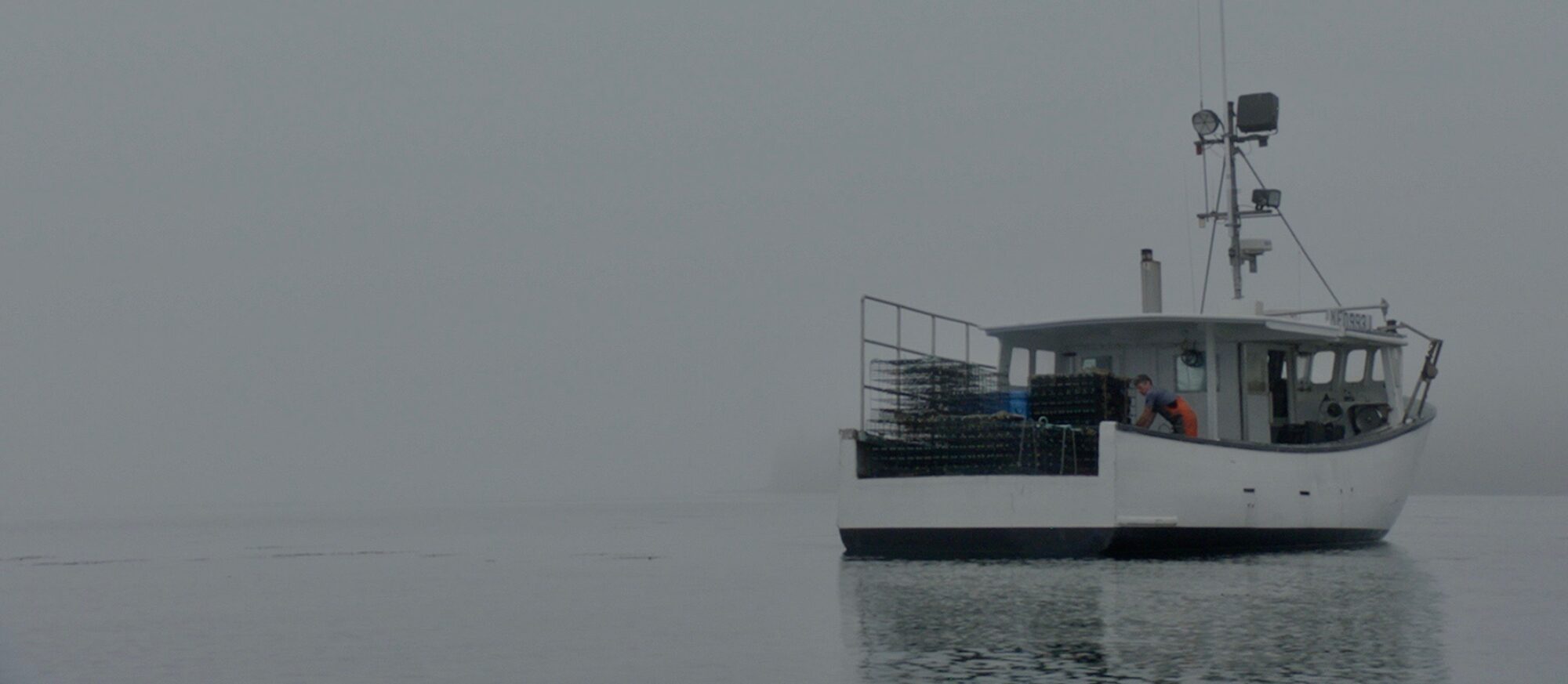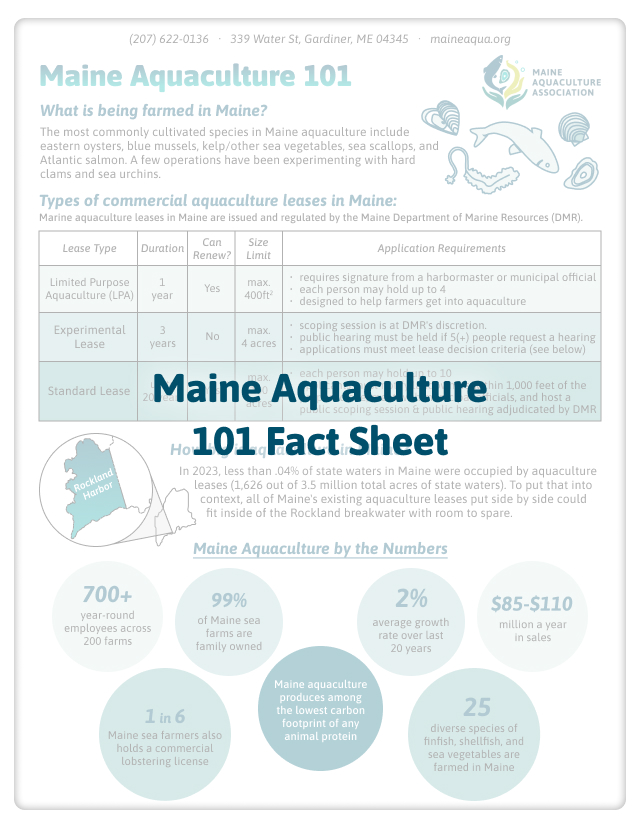The Maine Aquaculture Association (MAA) is a non-profit trade association that represents the Maine aquaculture industry at the state, federal, and international levels. Our members grow fin fish, shellfish, and sea vegetables. Since 1978, we have worked to support Maine’s aquatic growers in developing economically and environmentally sustainable business practices, promoting the benefits of aquaculture in the local food system, and preserving Maine’s heritage of a vibrant working waterfront.
Maine’s aquaculture industry overall represents nearly 200 farms and more than 700 farmers who produce premium seafood–fin fish, shellfish, and sea vegetables–in Maine’s cold, clean waters. The sector has been steadily growing in recent years, and its total economic impact has nearly tripled – from $50 million in 2007 to $137 million in 2014 – according to the latest Maine Aquaculture Economic Impact Report. Sustainable aquaculture has tremendous potential to bolster our coastal economy, providing good jobs, local food security, and diversification opportunities for working waterfront families.
Maine Aquaculture by the Numbers
– More than 25 diverse species of finfish, shellfish and sea vegetables are farmed in Maine
– Maine aquaculture represents $85-$110 million a year in sales
– Maine aquaculture provides jobs for more than 700 year-round employees across 200 farms (source: 2017 Maine Aquaculture Economic Impact Report)
– More than 99% of Maine sea farms are family-owned
– One in six Maine sea farmers also holds a commercial lobstering license.
– Maine aquaculture has enjoyed responsible growth over the last 20 years at an average rate of 2%. Globally, aquaculture is growing at 8% per year (FAO).
– Less than 1% of Maine’s coastal waters are used for aquaculture.
– Pound per pound, Maine aquaculture produces among the lowest carbon footprints of any animal protein.
Source: Maine Aquaculture Association
Our Mission
To work for the efficient production of food from Maine’s aquatic and marine environments;
To provide a channel for the exchange of information among aquaculturists and between aquaculturists and the public;
To suggest quality standards for aquaculture products;
To express opinion to the public and to the legislative branches of local, state, and federal governments on issues; and
To aid producers in the promotion of aquaculture products.
What We Do
• Track and intervene in state, federal and international legislation and rule making procedures that impact member operations.
• Represent members before state and federal agencies to assist in problem resolution.
• Regularly present to community groups and responds to press inquiries to educate the public about the benefits of aquaculture operations.
• Provide business planning support and consultation to Maine aquaculture producers.
• Exhibit and present at tourism, food, sportsmen, agricultural, environmental, and education trade shows and conferences to explain member operations and highlight Maine aquaculture’s contributions to Maine communities and the environment.
• Participate on and testifies before many influential bodies (ex. Maine Technology Institute, Global Aquaculture Alliance, NASCO, NOAA Marine Fisheries Advisory Committee, United States House and Senate Committees on Natural Resources, Agriculture, and Small Business, and a number of Maine State Legislative Committees including:
– Agriculture, Conservation & Forestry
– Appropriations & Financial Affairs
– Energy, Utilities & Technology, Environment & Natural Resources
– Inland Fisheries & Wildlife
– Innovation, Development, Economic Advancement & Commerce,
– Marine Resources
– Taxation
• Sit on boards such as the NOAA Science Advisory Board, International Salmon Farmers Association, National Aquaculture Association, Maine Fishermen’s Forum, Alliance for Maine’s Marine Economy, Island Institute, Maine Aquaculture Innovation Center, USDA Northeast Regional Aquaculture Center, University of Maine Board of Agriculture, & Maine Agriculture in the Classroom Association.
• Form strategic alliances with other natural resource users such as those in the tourism, conservation, forestry, farming, fishing and agriculture sectors.
• Regularly conduct tours of farms for educators, environmentalists, journalists, chefs, food writers, seafood buyers and state and federal policy makers.
• Maintain an informational website, engages with and educates the public via social media, provide materials to educators, and pitch to journalists on positive stories about Maine aquaculture.

